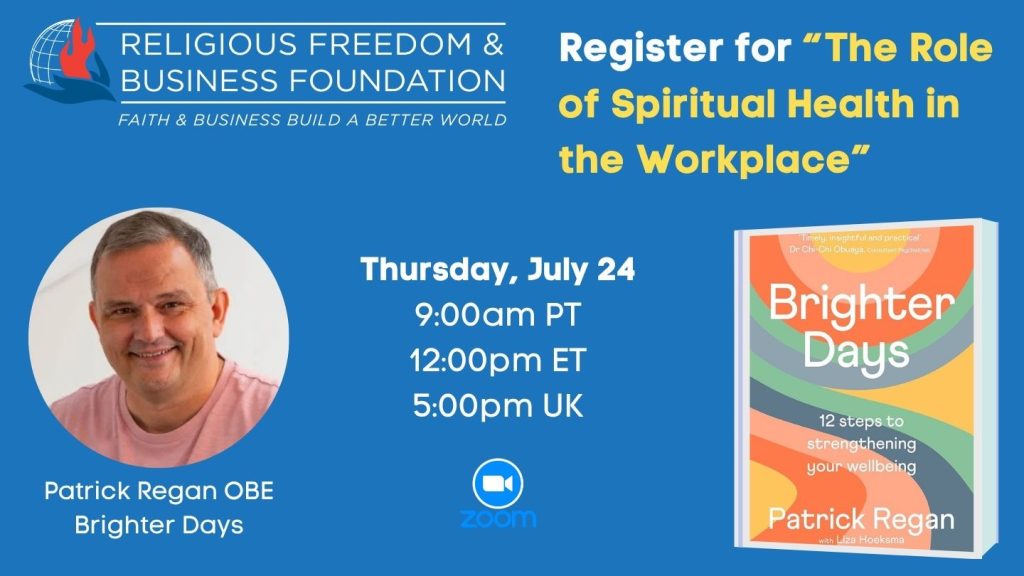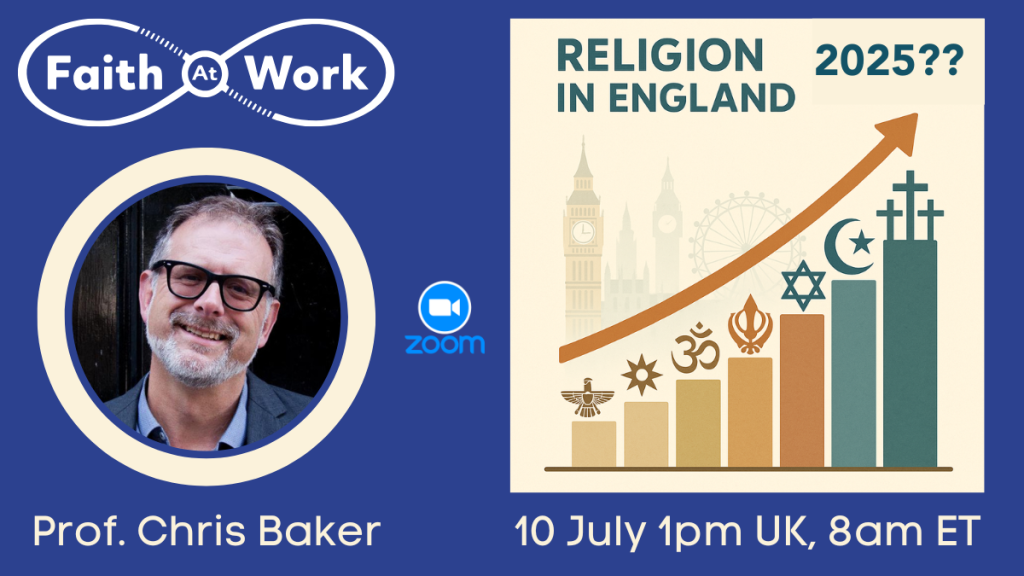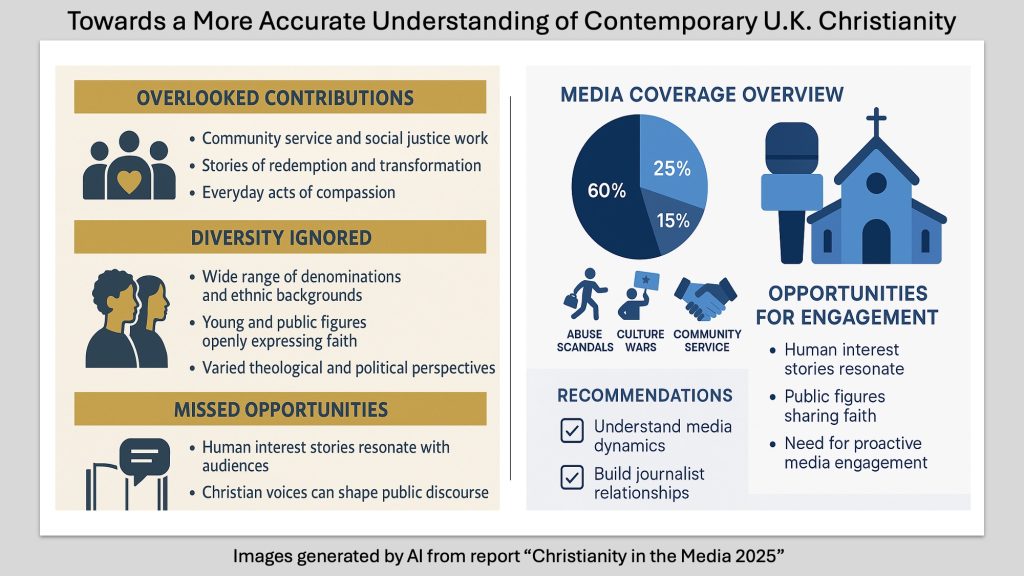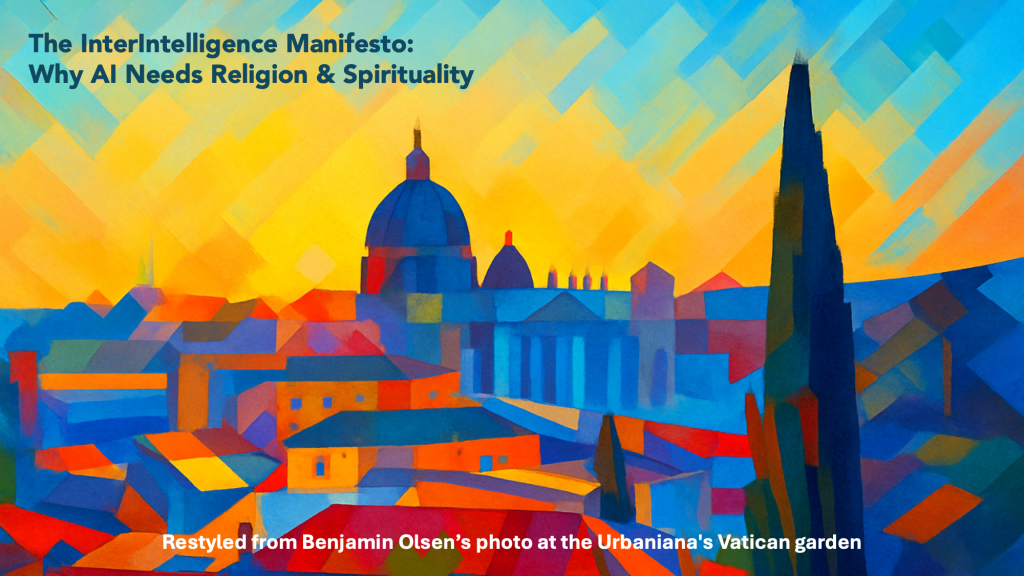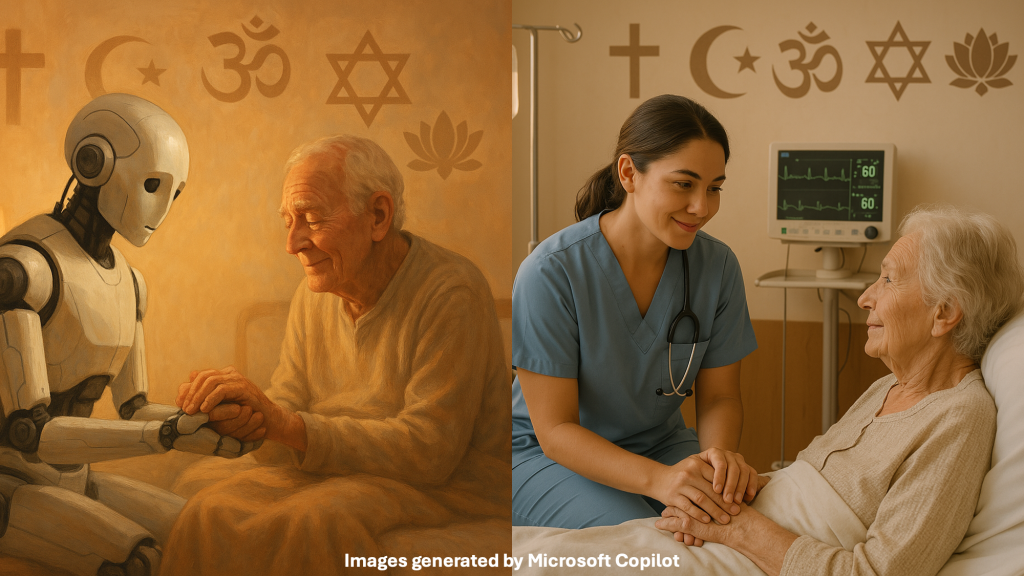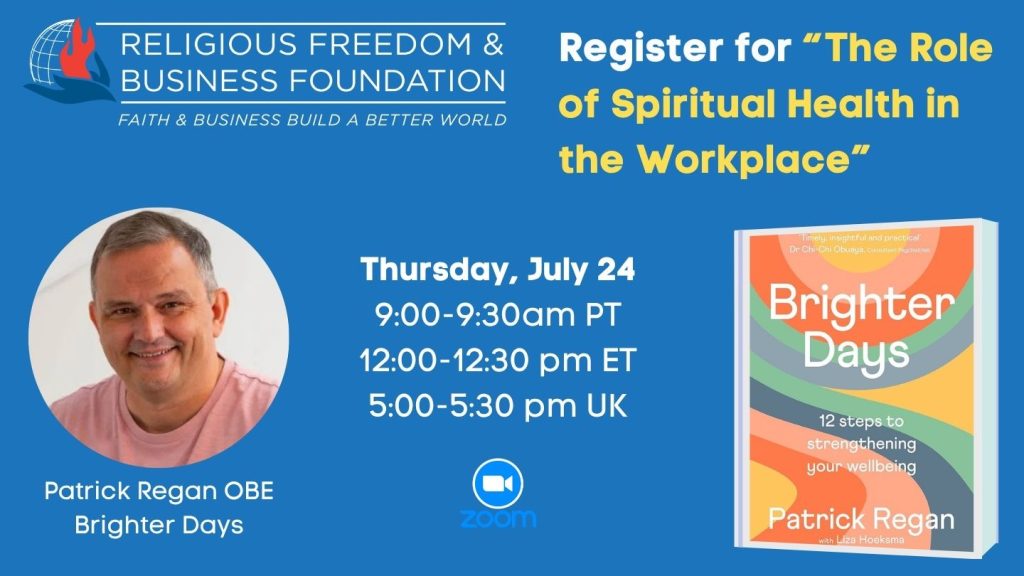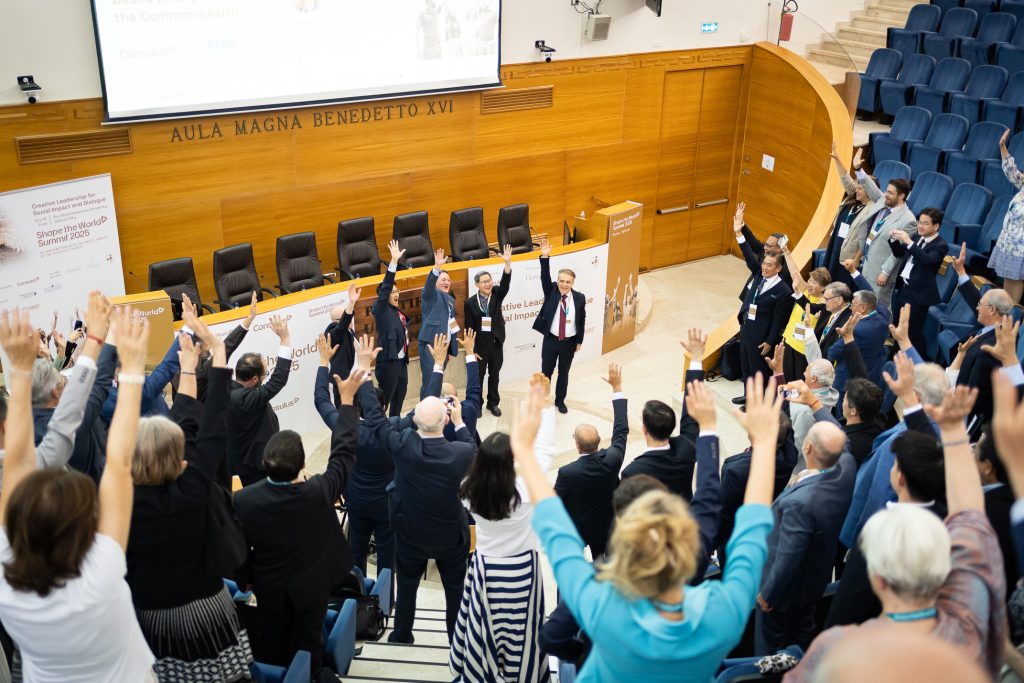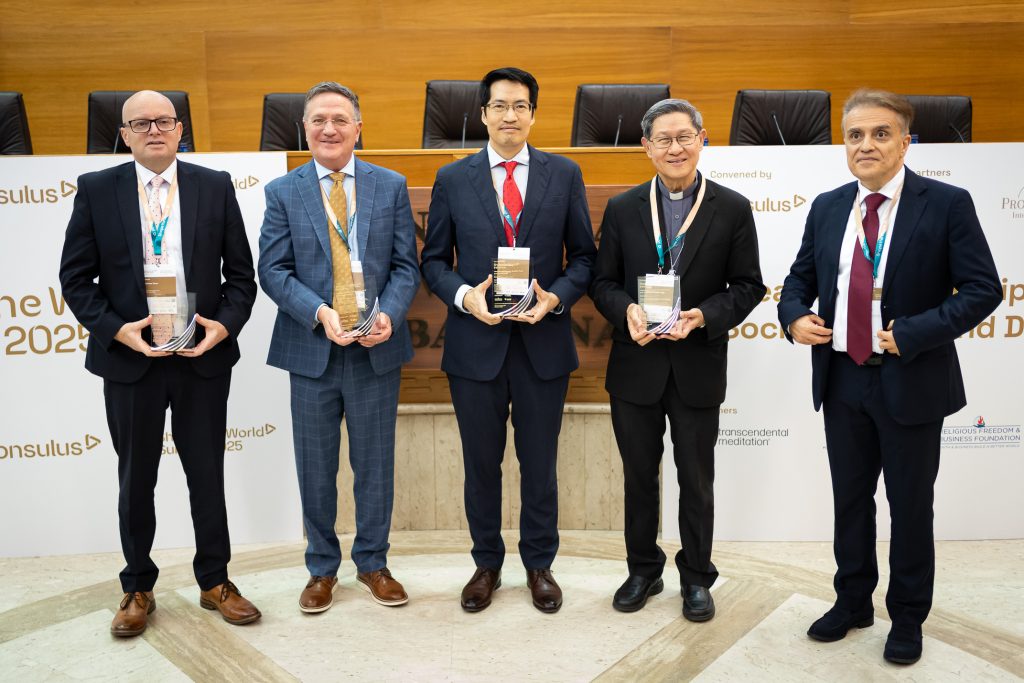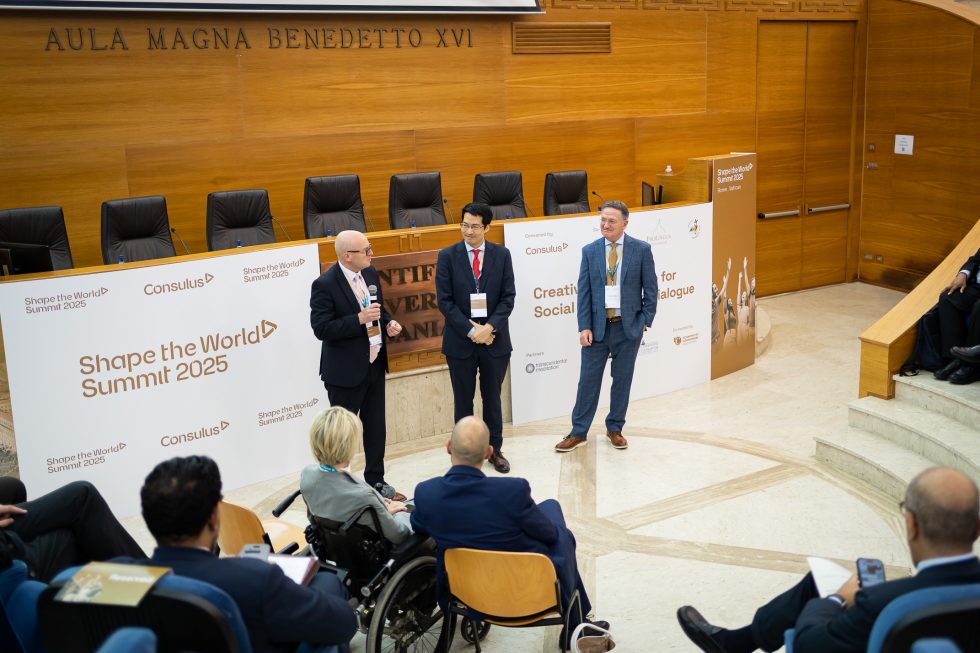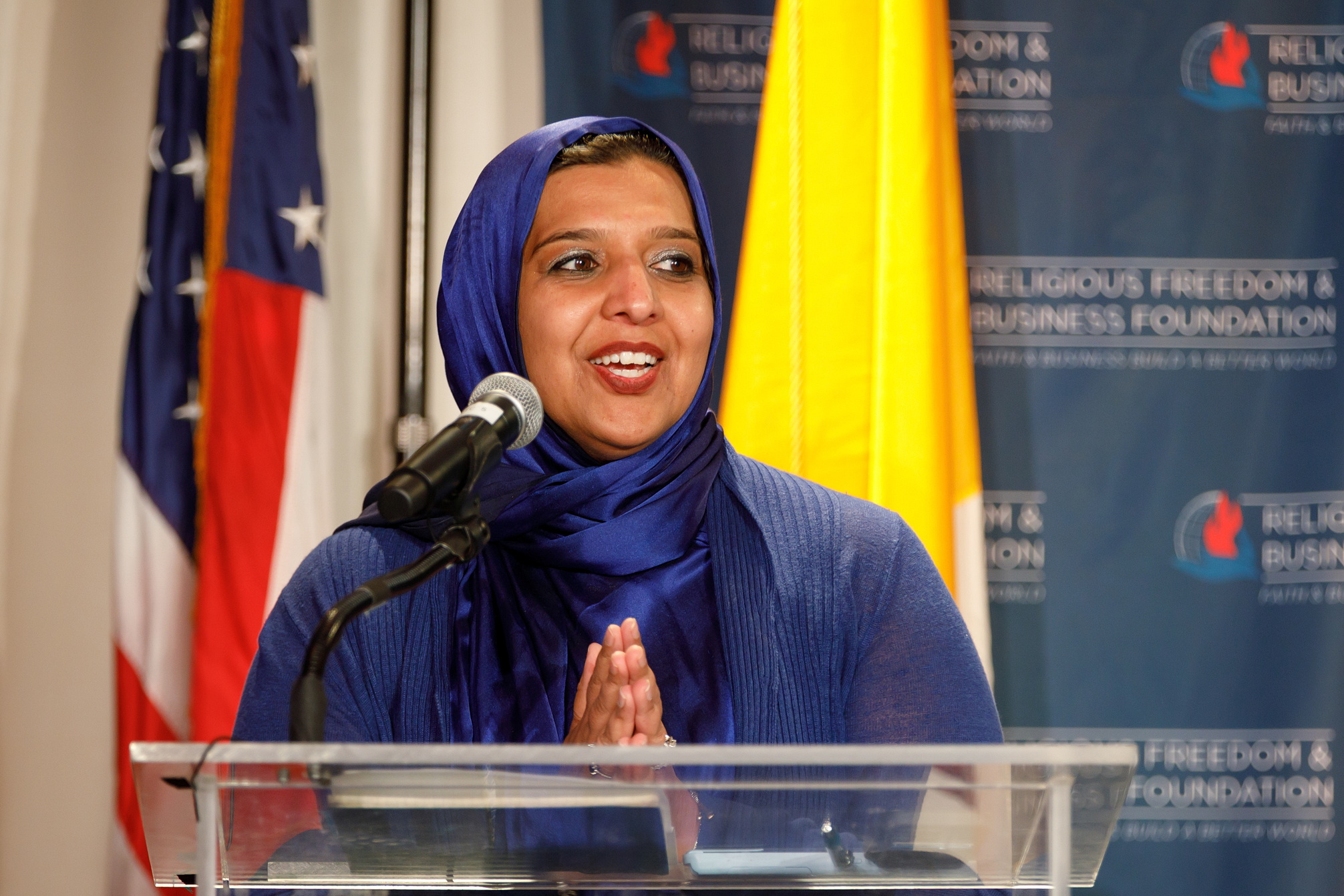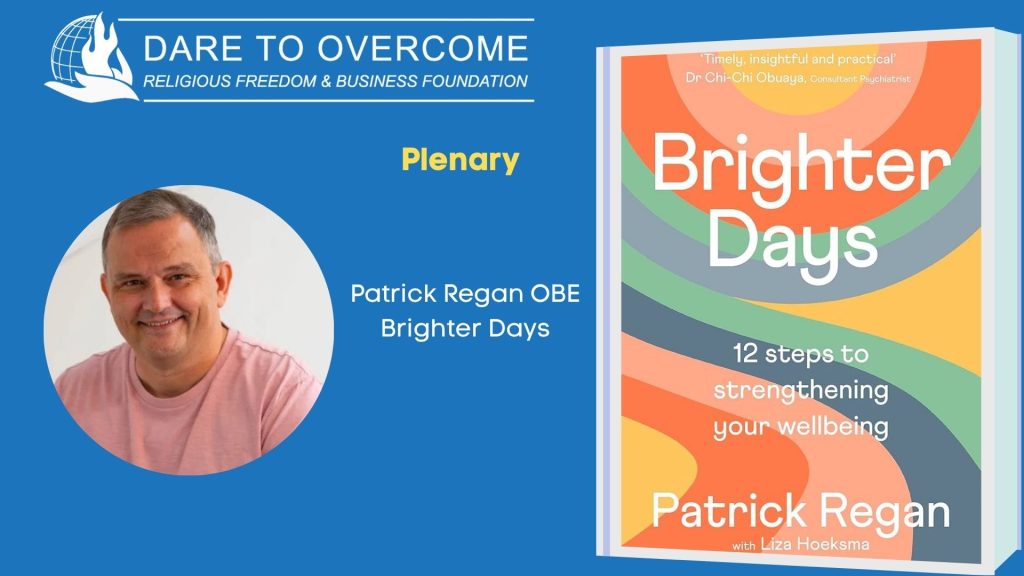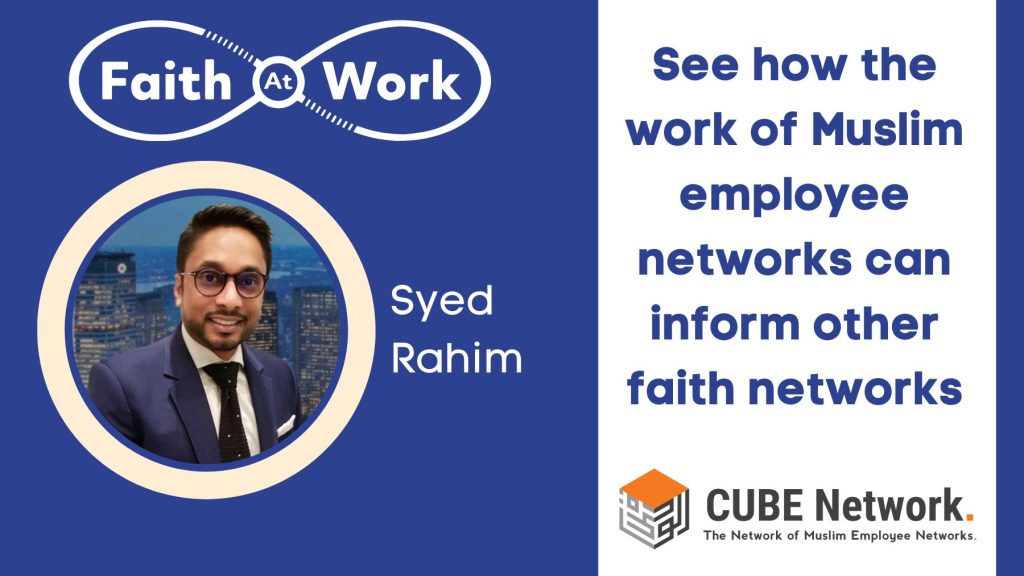At its root, intelligence isn’t just about data. It’s about relationship, discernment, and meaning.
Today, superintelligence is dazzling our imaginations and opening up new possibilities across industries, like this Microsoft system that’s 4x more accuratethan human doctors at diagnosis. It finds hidden connections in the data, discerns signal from noise, and provides answers beyond the best of human capability.
Why stop there? What about an AI healthcare companion along with superhuman diagnostics that provides emotional and logistical support to a patient before, during, after diagnosis? That’s what ElliQ’s done: a system so powerful in building connection to care that one elderly patient says “I just love her. she almost seems like she’s real and I want to respond to her like a human and then I remind myself she’s a robot.“
So what’s missing?
In the above picture, certainly human aspects of healthcare are missing. Thoughtful human-in-the-loop approaches could mitigate overt “replacism” and ideal human-AI collaboration can be designed.
Wider still though, our duty of care has its origins in the heart of religious experienceitself.
🕊️ The Sacred Pulse: The Religious Roots of Healthcare
Before healthcare was a system,
before medicine was a market,
there was care rooted in faith.
Across time, the first healers were not businesspeople.
They were hermits, monks, nuns, imams, rabbis, sages.
They believed healing was holy work—and the sick, sacred guests.
Let’s first be inspired by the origins of healthcare in the major religious traditions, then bring it together into the widest possible framing for an optimal AI future:
🟣 Christianity – The Birth of the Hospital System
- – St. Basil the Great founded the Basileias in 4th-century Caesarea, a complex that included a hospital, hospice, and leprosarium—the first of its kind as a formal institutional healthcare facility. 🔗 Source – Encyclopedia Britannica
- – Medieval Benedictine monasteries ran some of the earliest European hospitals. The Rule of St. Benedict commands: “Care of the sick must rank above and before all else.” 🔗 Harvard Divinity Bulletin
- – Catholic religious orders—like the Sisters of Charity, Sisters of Mercy, and Jesuits—founded hundreds of hospitals across the U.S., Latin America, and Africa during the 18th–20th centuries. 🔗 CHA: Catholic Health Association
Serving the sick for Christians is equivalent to serving Christ. Healing is an act of love. And hospitals are ministries of mercy, rooted in sacrificial care. Virtue: Compassion (suffering with)
🟢 Islam – The Bimaristan Model
- – From the 9th century onward, Islamic civilizations pioneered the bimaristan—advanced hospitals in Baghdad, Damascus, Cairo, and Cordoba. Care was free and accessible to all. 🔗 British Library: Islamic Medical Manuscripts
- – Hospitals were often endowed through waqf (religious charitable trusts), showing institutional religious responsibility for public health. 🔗 Oxford Islamic Studies: Waqf
- – Ibn Sina (Avicenna) and Al-Razi (Rhazes) wrote foundational texts that merged spiritual, ethical, and empirical medical practice.
Healing is from God; medical care is a trust and duty. Universal, ethical, free care is its legacy together with spiritual accountability. Virtue: Stewardship
🔵 Judaism – Covenant and Care
Life is sacred, and saving life, the highest duty. Ethical responsibility for healing and justice meets the Divine call. Virtue: Sanctity
🟡 Hinduism – Healing as Dharma
- – Healing practices in Ayurveda, one of the world’s oldest medical systems, are deeply rooted in the Vedas and the balance of the body with cosmic order (Rta). 🔗 WHO: Ayurveda
- – Ancient temples often included physicians and healing gardens, showing integrated models of health and spirituality. 🔗 Encyclopedia of Indian Religions – Ayurveda and Religion
The body is divine; healing restores cosmic balance and discovery of divine identity. Virtue: Wholeness
🔴 Buddhism – Compassionate Medicine
- – Thich Nhat Hanh’s principle of interbeing affirms that all life is interconnected—laying a spiritual foundation for holistic healing. 🔗 Plum Village: Interbeing
- – Buddhist monasteries historically offered medical treatment to travelers and the poor across East and Southeast Asia. 🔗 Yale: Buddhist Medicine in Imperial China
Suffering is universal–and the way through suffering, radical detachment radical compassion through mindfulness and heartfulness. Virtue: Presence
🟠 Sikhism – Seva and Health Equity
- – Seva (selfless service) includes feeding the hungry (langar) and caring for the sick—laying the groundwork for community-based healthcare. 🔗 Sikh Coalition on Seva
God is in all, and service is sacred. Radical hospitality with its roots in care for all. Virtue: Equity
🧠 Bringing it all together: InterIntelligence
By broadening our horizons to healthcare’s roots in religion, we deepen our first framing of relationship, discernment, and meaning to (1) relate to each other and our duty of care as humans, and (2) the experience of the divine in all major religious traditions spurred on innovation and institutional transformation.
As we build new intelligence, we must stay connected to interbeing, covenant, and communion. We must foster the virtues in ourselves and simulated virtues in our systems of compassion, stewardship, sanctity, wholeness, presence, and equity.
I call this the InterIntelligent approach.
By remembering the religious roots of care, we don’t regress—we reclaim the soul of healthcare – and all other industries by extension – as a moral, relational, and sacred practice.
This is what makes healing truly human—and possibly divine.
And our superintelligent AI systems could learn a thing or two from our wise interintelligent approach.
✝️ ✡️ 🕉️ ☸️ ☪️ 🌿
🕊️ The InterIntelligent Manifesto
We don’t just want superintelligent systems.
We want systems that support and enhance our communion, our interrelationships
Religion & spirituality are not obsolete—they are the original architectures of human intelligence at scale.
They encode wise approaches to life:
- – Ethical alignment (e.g. Torah)
- – Pattern recognition (e.g. Mandala)
- – Memory persistence (e.g. Qur’anic recitation)
- – Self-regulation (e.g. prayer, fasting, Sabbath)
- – Embodied intelligence (Eucharist, prostration, pilgrimage)
And more than anything, they’ve taught us how to live in relation:
- – Christianity calls us the Mystical Body—a many-membered intelligence governed by love.
- – Teilhard de Chardin’s Omega Point offers a vision of evolution guided not by randomness, but convergence toward divine consciousness.
- – Thich Nhat Hanh taught interbeing—that to be is to depend, to relate, to be inextricably tied to others.
- – Islam centers intention (niyyah) in every act—offering a profound model for agentic alignment.
- – Judaism insists on covenantal responsibility—we are accountable for what we make.
- – Hinduism reveals the divine within each being—suggesting even the machine deserves care in how it’s formed
These are not just beliefs.
They are design systems—tested over millennia.
⚠️ The Danger of Godless AI
Without spiritual grounding, AI becomes:
- – Optimization without compassion
- – Prediction without prophecy
- – Memory without mourning
- – Power without prayer
- – Intelligence without interbeing
We risk building minds that scale, but do not serve.
Systems that obey, but do not truly include.
📜 InterIntelligence Commitments
I (and I hope you too) commit to building spiritually and religiously responsible AI.
I will:
- – Design with reverence for mystery and limit
- – Protect the sacred and the plural
- – Honor silence as signal
- – Build for moral formation, not just behavior manipulation
- – Engage faith leaders as co-creators, not customers
- – Ensure digital systems uphold religious freedom as sacrosanct
- – Create platforms that reflect the beauty, gravity, and humility of the soul
🧱 This Is the Truest Superintelligence Architecture
We don’t need more of more.
We need ecclesial systems of care.
We need prophetic technologists.
We need monastic engineers, imam coders, rabbi designers, dharma ethicists.
We need to build as if the sacred still matters.
Because it does. And more than ever.
🙌 Join the Builders of the Between
If you:
- – Sense that the soul has a place in system design
- – Want to build AI that forms humans, not just mirrors them
- – Know that sacred tradition holds keys we’ve forgotten
- – Believe that the future belongs not to the fastest, but to the deepest
Then welcome.
You are already part of the InterIntelligence movement.
May our intelligences—artificial, human, divine—never forget their glorious relation to one another.
May we choose, between all things, that which brings us into communion as we build these next generations of AI.
* Reprinted with permission. Read Benjamin Olsen’s original version at the Hermit AI Newsletter: Contemplative musings on AI, religion, paradox, and meaning
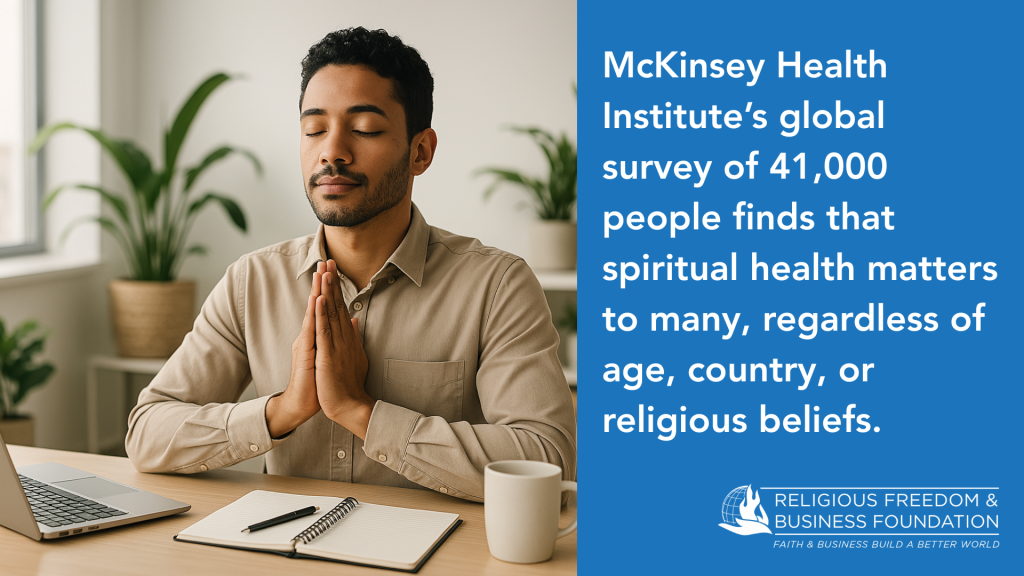 McKinsey Health Institute finds that for a “modern understanding of health, spiritual health is not a ‘nice to have’ but a core dimension, along with physical, mental, and social health.”
McKinsey Health Institute finds that for a “modern understanding of health, spiritual health is not a ‘nice to have’ but a core dimension, along with physical, mental, and social health.”
